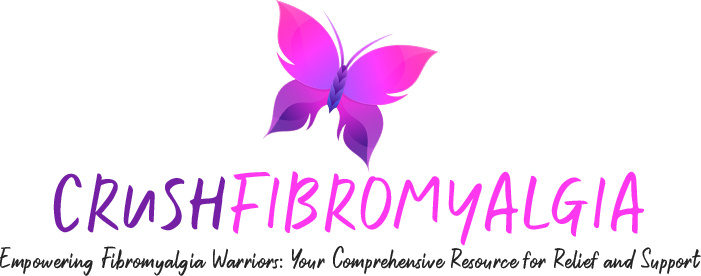Last Reviewed and Updated: November 2023
Fibromyalgia is a complex and often misunderstood chronic condition characterized by widespread pain, fatigue, and a range of other symptoms. While the exact cause of fibromyalgia remains elusive, understanding its most common symptoms is crucial for early detection, diagnosis, and effective management. In this article, we will explore the top ten most prevalent symptoms of fibromyalgia, shedding light on the challenges faced by individuals with this condition.
Medical Disclaimer: Please note that we are not medical professionals, and while our info is heavily researched, the information provided in this blog post is for informational purposes only. It should not be considered as a substitute for professional medical advice, diagnosis, or treatment. If you are experiencing any eye-related symptoms or have concerns about your health, it is crucial to consult with a qualified healthcare professional for proper evaluation and personalized medical advice. Always seek the guidance of a medical professional before making any changes to your healthcare regimen.
Affiliate Link Disclosure: Some of the products on this page may be affiliate links, and we may receive compensation if you click on those links. However, please rest assured that as sufferers of Fibromyalgia ourselves, our recommendations are based on our honest evaluation and a ton of research.
1. Widespread Pain

The hallmark symptom of fibromyalgia is widespread musculoskeletal pain that affects various areas of the body. It is typically described as a deep, persistent ache, often accompanied by tenderness and sensitivity to touch. The pain may migrate and intensify over time, impacting daily activities and quality of life.
2. Fatigue and Sleep Disturbances

Chronic fatigue is a common complaint among fibromyalgia patients. Despite adequate rest, individuals may wake up feeling tired and lacking energy. Sleep disturbances, including difficulty falling asleep or staying asleep, frequent awakenings, and non-restorative sleep, further contribute to the exhaustion experienced by those with fibromyalgia.
3. Cognitive Dysfunction (Fibro Fog)

Many individuals with fibromyalgia report experiencing cognitive difficulties commonly known as “fibro fog.” This can manifest as memory problems, difficulty concentrating, impaired attention span, and decreased mental clarity. Fibro fog can significantly impact daily functioning, work productivity, and overall cognitive performance.
4. Morning Stiffness

Stiffness in the muscles and joints, particularly in the morning, is a common symptom of fibromyalgia. Upon waking, individuals may experience reduced flexibility and mobility, which gradually improves throughout the day. Morning stiffness can contribute to a slower start to the day and increased discomfort.
5. Headaches

Frequent headaches, including tension headaches and migraines, are often reported by individuals with fibromyalgia. These headaches can be severe and debilitating, adding to the overall burden of the condition. Identifying triggers and implementing appropriate management strategies are essential for relieving headache symptoms.
6. Sensitivity to Sensory Stimuli

Heightened sensitivity to sensory stimuli is a hallmark feature of fibromyalgia. This includes sensitivity to light (photophobia), sound (phonophobia), temperature changes, and certain textures. Everyday sensations that may be tolerable to others can become overwhelming and lead to increased discomfort for individuals with fibromyalgia.
7. Digestive Problems

Gastrointestinal issues, such as irritable bowel syndrome (IBS), are commonly associated with fibromyalgia. Symptoms can include abdominal pain, bloating, constipation, diarrhea, and changes in bowel habits. Effective management of digestive problems often involves dietary modifications, stress reduction techniques, and medications.
8. Anxiety and Depression

Fibromyalgia can have a significant impact on mental health. Anxiety and depression are frequently experienced by individuals with this condition. The chronic pain, fatigue, and other symptoms can take a toll on emotional well-being, making it crucial to address and manage these co-occurring mental health challenges.
9. Urinary and Pelvic Issues

Fibromyalgia may be accompanied by urinary and pelvic problems, such as frequent urination, urgency, bladder pain, and pelvic pain. These symptoms can be distressing and have a significant impact on daily life. Seeking medical guidance and exploring targeted treatment options can help alleviate these issues.
10. Numbness and Tingling

Some individuals with fibromyalgia may experience numbness, tingling, or a pins-and-needles sensation in their extremities. This symptom, known as paresthesia, can occur intermittently or persistently

